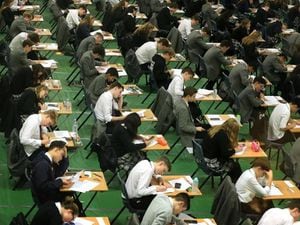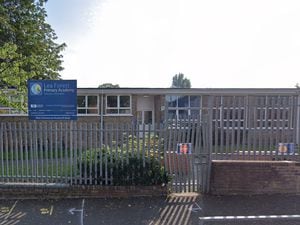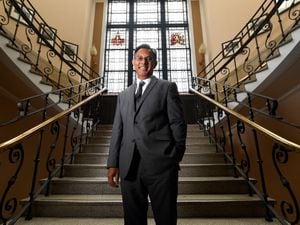Poorest pupils in Black Country are more than 18 months behind better-off peers, new figures show
Disadvantaged youngsters in the Black Country are more than 18 months behind their better-off peers by the time they sit their GCSEs, new figures reveal.

The figures from the Education Policy Institute showed that the gap was highest in Dudley, where disadvantaged youngsters fell 21.2 months behind children from better-off backgrounds by the age of 16.
In Sandwell, the gap is 18.9 months, while in Walsall it was 20.7 months.
In Wolverhampton the gap is 18.8 months.
In Staffordshire the gap was even bigger, with ‘disadvantaged’ pupils – defined as having been eligible for free school meals some time in the past six years – falling 22.2 months behind.
The report looked at the performance of youngsters in 2019 figures.
It also showed large disparities in the number of children classed as disadvantaged, accounting for more than a third of secondary school pupils in Wolverhampton, Walsall and Sandwell, but just 18 per cent in Staffordshire.
In Dudley just over a quarter of pupils were classified as disadvantaged.
The figures did show, though, that the gap appeared to be closing in Sandwell, Walsall and Wolverhampton. However, in Dudley and Staffordshire it had widened compared to 2012.
David Laws, executive chairman of the think tank, said this comes despite the Government’s pledge to “level up” regional inequalities.
'More to be done'
Education chiefs have stressed there is “more to be done” to tackle the educational gap for disadvantaged pupils.
Councillor Dr Michael Hardacre, cabinet member for education and skills at Wolverhampton Council, said the authority had worked “extremely hard” with schools.
He said: “This has been extremely successful and we’ve been pleased with the outcomes, but however we do know that always there’s more to be done in order to keep closing the gap.
“We have grave concerns that the absence of children from school during the Covid-19 pandemic will have made our efforts all the more difficult to sustain.”
Staffordshire County Councillor Jonathan Price, cabinet member for education, said work is ongoing with education partners to understand what support is needed and to ultimately close the gap across Staffordshire.

Councillor Ruth Buttery, cabinet member for children and young people for Dudley Council, said the authority was committed to ensuring all children and young people “reach their potential”.
She said: “Our very successful summer provision, aimed at our more disadvantaged children and young people has benefited many families, and we are now focused on helping our children and young settle back into school next week.”
Councillor Christopher Towe, portfolio holder for education and skills for Walsall Council, said: “At Walsall Council, and for me, all of our efforts are ongoing to bring those young people back to line with their peers – that’s a given – we believe every pupil should live up to their potential. We’ve got robust plans in place and we’re mindful that it’s a one-off opportunity for our young people.
“We clearly know that students, particularly from disadvantaged backgrounds, will slip further behind due to coronavirus than those from more affluent areas.”
Support
Dawn Haywood, deputy chief executive at Windsor Academy Trust, said support had been offered – even before lockdown – to academy students across the Black Country and Staffordshire.
She said they had made sure all of their pupils had a device to access learning outside of the classroom in a bid to ensure young people didn’t slip behind due to coronavirus.
And “accelerated learning” plans are in place to ensure pupils who may have fallen behind as a result of coronavirus as young people return to school next week.
She added: “We’re really proud of the support we’ve been able to provide to our young people and clearly, within that, our disadvantaged young people.”
A spokesman for the Department of Education said: “While the attainment gap had narrowed since 2011, many have had their education disrupted by coronavirus, and we cannot let these children lose out.”
He added the £1 billion Covid catch-up package will tackle the impact of lost teaching time, with £350 million for disadvantaged youngsters, for whom getting back to school is particularly important.





